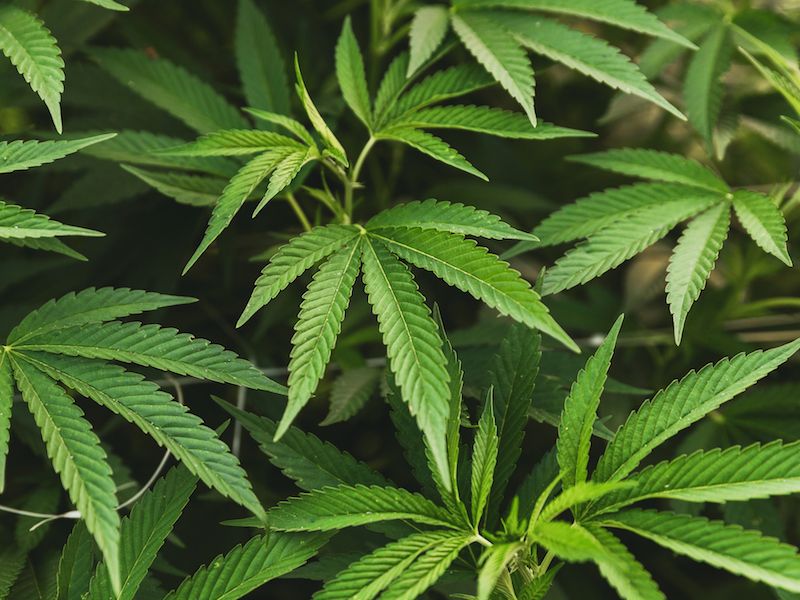Public opinion surrounding marijuana and cannabinoids have changed remarkably over the last several decades. Most states now permit the use of marijuana, THC, or cannabinoid products for medicinal applications. A decade ago it would have been unthinkable for pot to be legal for recreational usage but some states have even taken this step.
Cannabinoids are identified as a group of compounds produced from the cannabis or marijuana plant. In spite of their recent legalization in certain states, we’re still discovering new things about cannabinoids. We usually consider these particular compounds as having universal healing qualities, but current research implies there might also be negative effects including a strong link between cannabinoid usage and the development of tinnitus symptoms.
There Are Many Forms of Cannabinoids
There are lots of varieties of cannabinoids that can be taken now. It isn’t just weed (or ganja, or pot…..ok, there are lots of nicknames for marijuana so let’s move on). These days, THC and cannabinoids are available in pill form, as lotions, as inhaled vapor, and lots of others.
Every state has different regulations regarding what forms of cannabinoids you can get, and under federal law, many forms are still illegal if the THC content is more than 0.3%. So it’s still common for people to be very cautious about cannabinoids.
The issue is that we don’t yet know much about some of the long term side effects or complications of cannabinoid usage. A good example is the new insight about how cannabinoids impact your hearing.
Cannabinoids And Your Hearing, Some New Studies
Whatever you would like to call it, cannabinoids have long been linked to improving a wide range of medical ailments. Seizures, nausea, vertigo, and more seem to be improved with cannabinoids, according to anecdotally available evidence. So investigators decided to find out if cannabinoids would be helpful with tinnitus, too.
Turns out, cannabinoids could actually trigger tinnitus. Based on the research, over 20% of study participants who employed cannabinoid products documented hearing a ringing in their ears. And these participants had never had tinnitus symptoms before the study. What’s more, marijuana users were 20-times more likely to report having tinnitus symptoms after 24 hours.
And for people who already have tinnitus, marijuana usage made it worse. This basically means, there’s some very strong evidence that tinnitus and cannabinoids don’t really mix very well.
How Cannabinoids worsen tinnitus
There are a couple of tangible ways that cannabinoids can cause your tinnitus to get worse. First, the incidents of tinnitus symptoms can get more frequent, you might notice the ringing or buzzing in your ears more persistently. Also, your bouts of tinnitus can become more overwhelming when you’re using cannabinoids. The discomfort from the ringing may get more intense or harder to ignore.
Cannabinoids have also been found to cause the onset of tinnitus symptoms. Or, stated another way: after you begin using cannabinoids you could develop tinnitus symptoms even if you didn’t have them before.
The Causes of Tinnitus Are Unknown
We know that there’s a link between tinnitus and certain triggers but we’re still not certain what the actual root causes are. That cannabinoids can have an affect on the middle ear and on tinnitus is fairly clear. But it’s much less obvious what’s causing this impact.
But we are aware that marijuana is one of the few frequently used mood-altering substances that causes tinnitus (alcohol, for example, hasn’t been demonstrated to have a strong connection with tinnitus).
Of course, we will keep doing research. Cannabinoids nowadays come in so many kinds and forms that discovering the fundamental link between these substances and tinnitus should help individuals make better choices.
Beware The Miracle Cure
There has certainly been no shortage of marketing hype associated with cannabinoids recently. That’s partly because perceptions are changing about cannabinoids (and, to an extent, is also an indication of a desire to turn away from opioid use). But this new research makes clear that cannabinoids can and do produce some negative consequence, specifically if you’re concerned about your hearing.
The marketing for cannabinoids has been extremely aggressive and you can’t entirely escape all of the fanatics.
But cannabinoids and tinnitus are clearly associated based on this research. So no matter how many adds you see for CBD oils, if you’re worried about tinnitus, you should probably steer clear of them. The link between tinnitus and cannabinoids symptoms has been pretty securely demonstrated by the research, so it’s worth exercising a little caution.

